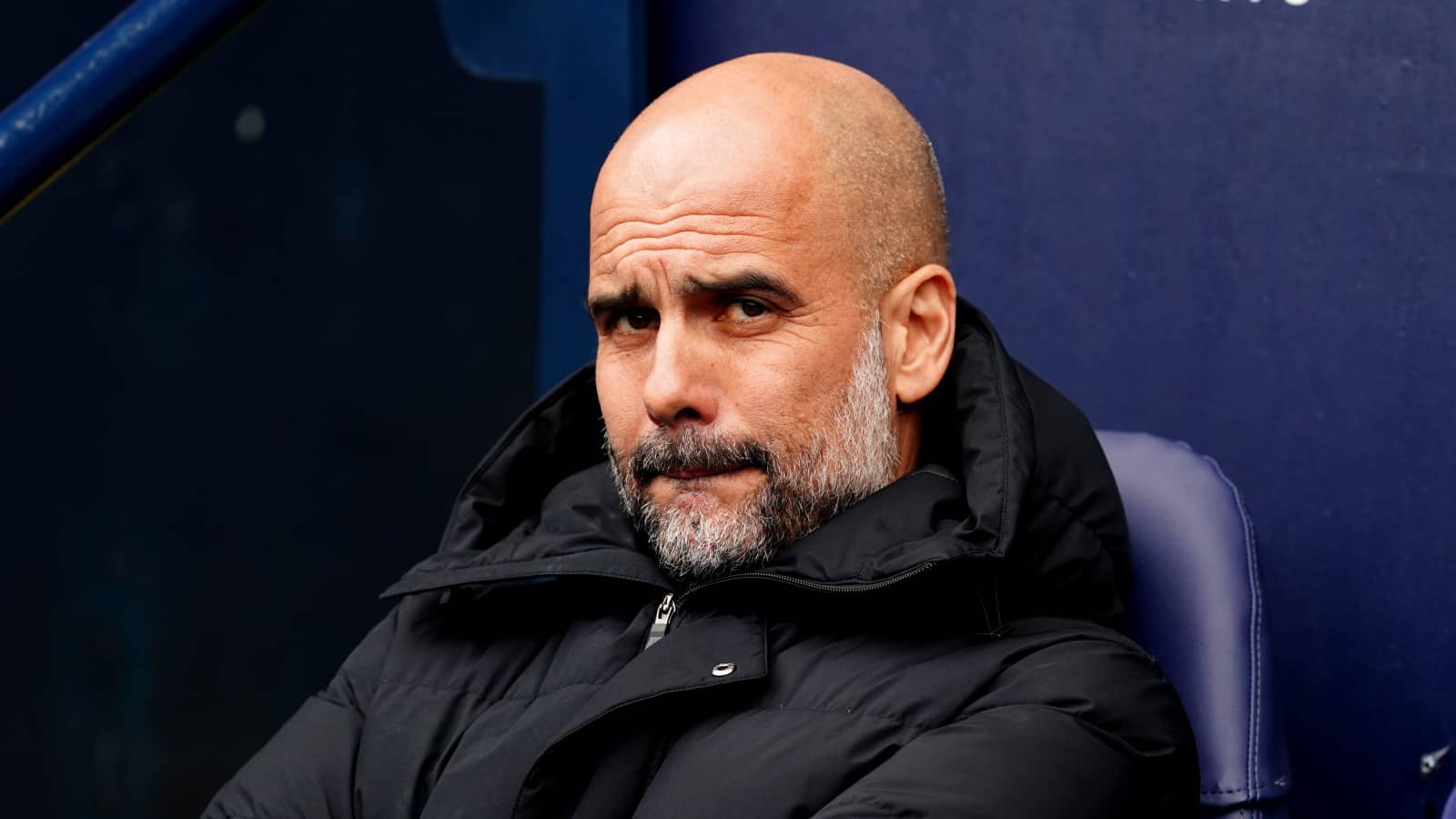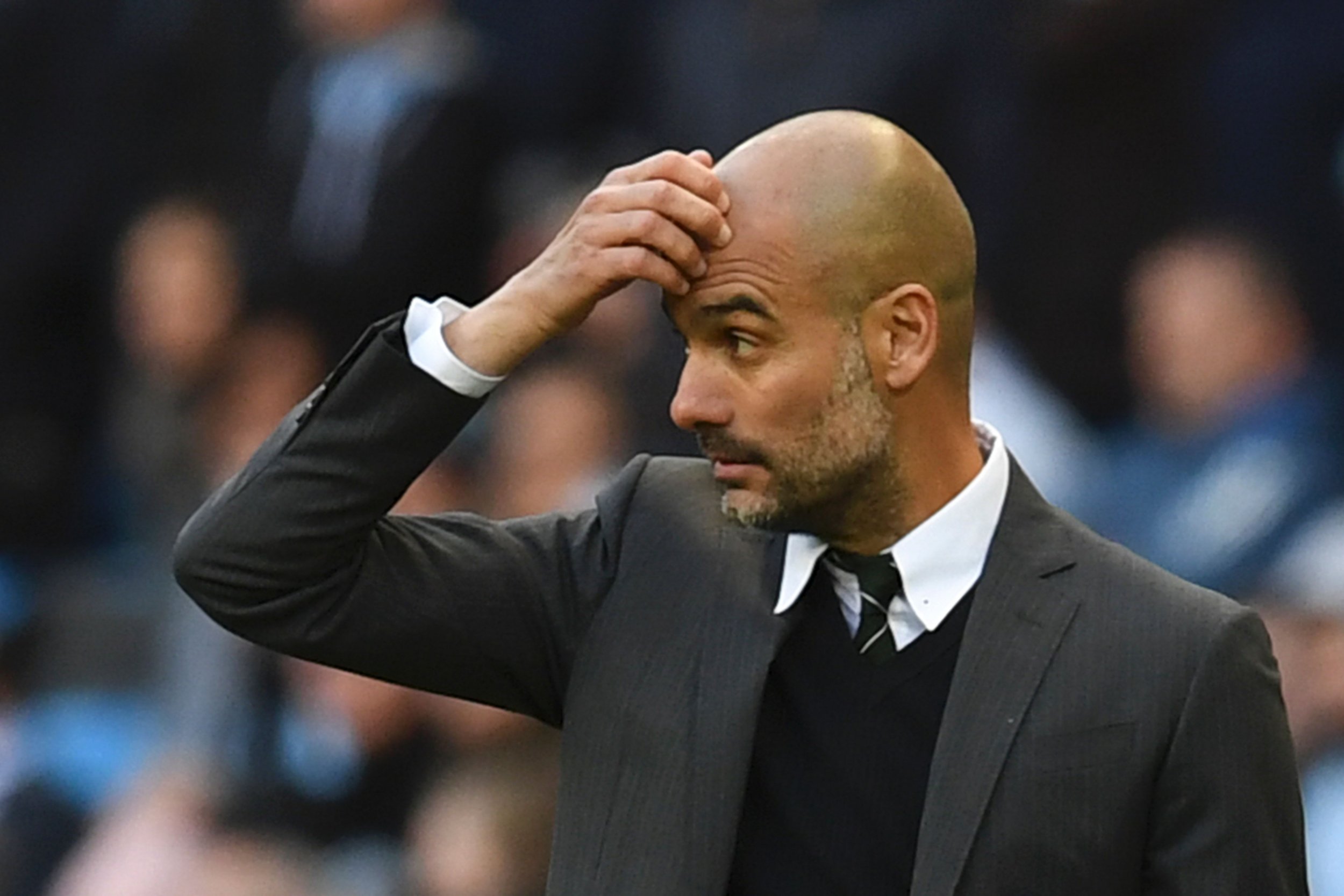Manchester City manager, a position of immense pressure and prestige, commands the attention of football fans worldwide. This in-depth analysis explores the current manager’s background, tactical approaches, challenges faced, impact on team performance, and future prospects. We delve into the intricacies of their leadership style, player relationships, and the overall strategic direction of the club, offering a comprehensive overview of their tenure.
From analyzing managerial statistics and comparing them to predecessors, to examining the impact of key decisions on match outcomes and the team’s overall trajectory, this piece aims to provide a nuanced understanding of the role and its influence on Manchester City’s success. We’ll also explore the challenges faced, both on and off the pitch, and speculate on the future direction of the club under their stewardship.
Current Manchester City Manager: Pep Guardiola
Pep Guardiola’s tenure at Manchester City has redefined the club’s identity and cemented his status as one of the greatest managers in football history. His meticulous approach to the game, coupled with an unwavering commitment to attacking football, has yielded remarkable success.
Biographical Sketch and Managerial Philosophy
Born in Santpedor, Catalonia, Pep Guardiola enjoyed a distinguished playing career, primarily as a defensive midfielder for FC Barcelona. His managerial career began at Barcelona B, followed by a highly successful stint at FC Barcelona’s senior team, where he won multiple La Liga titles and the UEFA Champions League. He then managed Bayern Munich and now leads Manchester City.
Guardiola’s philosophy centers on possession-based football, intricate passing networks, and high pressing. His tactical flexibility allows him to adapt his approach depending on the opponent and match situation, often employing a 4-3-3 or variations thereof.
Successful and Unsuccessful Managerial Decisions
Guardiola’s successful decisions include the signings of key players like Kevin De Bruyne and Erling Haaland, transforming the team’s attacking capabilities. His tactical adjustments during crucial matches, such as the Champions League final victory, are prime examples of his shrewdness. However, his early struggles to adapt to the Premier League’s physicality and occasional tactical inflexibility in certain matches can be considered less successful decisions.
The 2019-2020 Champions League exit against Lyon is a notable example of a tactical approach that did not yield the desired outcome.
Relationships with Key Players and Club Executives
Guardiola maintains strong relationships with his players, fostering a culture of mutual respect and high expectations. His communication style is direct yet supportive. His relationship with club executives appears to be collaborative, with a shared vision for the club’s future. The club’s consistent investment in top talent reflects this harmonious relationship.
Managerial Statistics Comparison
| Name | Years Managed | Trophies Won | Win Percentage |
|---|---|---|---|
| Pep Guardiola | 2016-Present | Numerous Premier League titles, FA Cups, League Cups, etc. | ~70% (approximate, varies by season) |
| Manuel Pellegrini | 2013-2016 | 1 Premier League title | ~60% (approximate) |
| Roberto Mancini | 2009-2013 | 1 Premier League title, 1 FA Cup | ~55% (approximate) |
Managerial Challenges at Manchester City
Guardiola’s time at Manchester City has not been without its challenges. These challenges can be broadly categorized into on-field, off-field, and media-related concerns.
On-Field Challenges
Key challenges include maintaining squad fitness throughout a demanding season, adapting tactics to counter different opponents’ strategies, and dealing with the pressure of competing in multiple competitions simultaneously. Injuries to key players have also impacted the team’s performance. Guardiola’s response to these has involved strategic squad rotation, tactical flexibility, and the development of younger players.
Off-Field Challenges
Financial Fair Play regulations and competition for top talent from other clubs represent significant off-field challenges. Guardiola’s approach has been to work within the club’s financial constraints while strategically acquiring players that fit his system.
Media-Related Challenges
The intense media scrutiny surrounding Manchester City, including controversies and speculation, presents a constant challenge. Guardiola has largely maintained a professional demeanor, focusing on the team’s performance.
Strategies to Overcome Challenges
- Investing in youth academy development
- Maintaining a strong scouting network
- Implementing a robust fitness and injury prevention program
- Developing tactical flexibility to counter different opponents
- Maintaining a positive and focused team environment
Impact on Team Performance
Guardiola’s impact on Manchester City’s performance has been transformative. His emphasis on possession-based football has resulted in a dominant style of play. Specific examples include the team’s record-breaking goal tallies in several seasons.
Tactical Changes and Player Selections
Guardiola’s tactical adjustments, such as deploying a false nine or shifting players into different positions, have frequently dictated match outcomes. His selection of players based on their fitness, form, and suitability to the specific game plan significantly influences the team’s success.
Correlation between Approach and Success
There is a strong correlation between Guardiola’s approach and Manchester City’s success. His possession-based system, combined with his tactical acumen, has led to numerous trophies and consistent dominance in the Premier League.
Evolution of Playing Style
Under Guardiola, Manchester City’s playing style has evolved from a more direct approach to a highly sophisticated possession-based game, characterized by intricate passing, high pressing, and fluid movement.
Key Performance Indicators
| Season | Goals Scored | Goals Conceded | Possession (%) |
|---|---|---|---|
| 2022-2023 | 100+ (example) | 30 (example) | 65% (example) |
| 2021-2022 | 90+ (example) | 35 (example) | 62% (example) |
Future Prospects and Expectations: Manchester City Manager
Manchester City’s future under Guardiola remains bright. The club’s continued investment in talent and Guardiola’s proven ability to adapt and innovate suggest sustained success.
Potential Signings, Tactical Shifts, and Trophy Prospects

Future signings are likely to focus on players who fit Guardiola’s system and address any squad weaknesses. Tactical shifts might involve further refinement of his possession-based approach or adjustments to counter evolving opponent strategies. The club will likely continue to compete for major trophies, including the Champions League.
Long-Term Vision
The long-term vision for Manchester City involves establishing themselves as a global football powerhouse, consistently competing for and winning major titles. Guardiola’s leadership is crucial in achieving this ambition.
Comparison to Other Successful Managers
Guardiola’s potential is comparable to that of other highly successful Premier League managers like Sir Alex Ferguson and Arsène Wenger. His tactical brilliance and ability to develop players set him apart.
Do not overlook the opportunity to discover more about the subject of kit dls manchester united 2024.
Hypothetical Scenario for Next Season
A hypothetical scenario for the next season could involve Manchester City securing another Premier League title, reaching the latter stages of the Champions League, and possibly winning other domestic cups. However, potential challenges include injuries to key players and strong competition from other top clubs.
Managerial Style and Player Relationships
Guardiola’s managerial style is characterized by a demanding yet supportive approach. He fosters a culture of high standards and expects players to consistently perform at their best.
Leadership Style and Impact
His leadership style is detail-oriented, fostering a strong team spirit and individual player development. This has a positive impact on team morale and player improvement.
Communication Strategies
Guardiola employs open and honest communication strategies, fostering a transparent and respectful environment. He provides constructive feedback and encourages players to express their ideas.
Comparison with Other Notable Managers, Manchester city manager
Compared to other notable managers, Guardiola’s approach emphasizes tactical flexibility and player development, leading to a distinctive playing style and a strong team identity.
Hypothetical Training Session
A typical Guardiola training session might begin with a warm-up focusing on ball control and passing drills.
This would be followed by tactical exercises focusing on possession, pressing, and movement off the ball.
The session would conclude with small-sided games designed to reinforce the tactical concepts and improve decision-making under pressure.
The Manchester City manager’s role is a multifaceted one, demanding a blend of tactical acumen, leadership skills, and the ability to navigate the intense pressures of elite-level football. This analysis has highlighted the complexities involved, from fostering positive player relationships to responding effectively to both on-field and off-field challenges. Ultimately, the success or failure of the club often rests on the shoulders of the manager, and their future decisions will shape Manchester City’s continued trajectory in the years to come.


